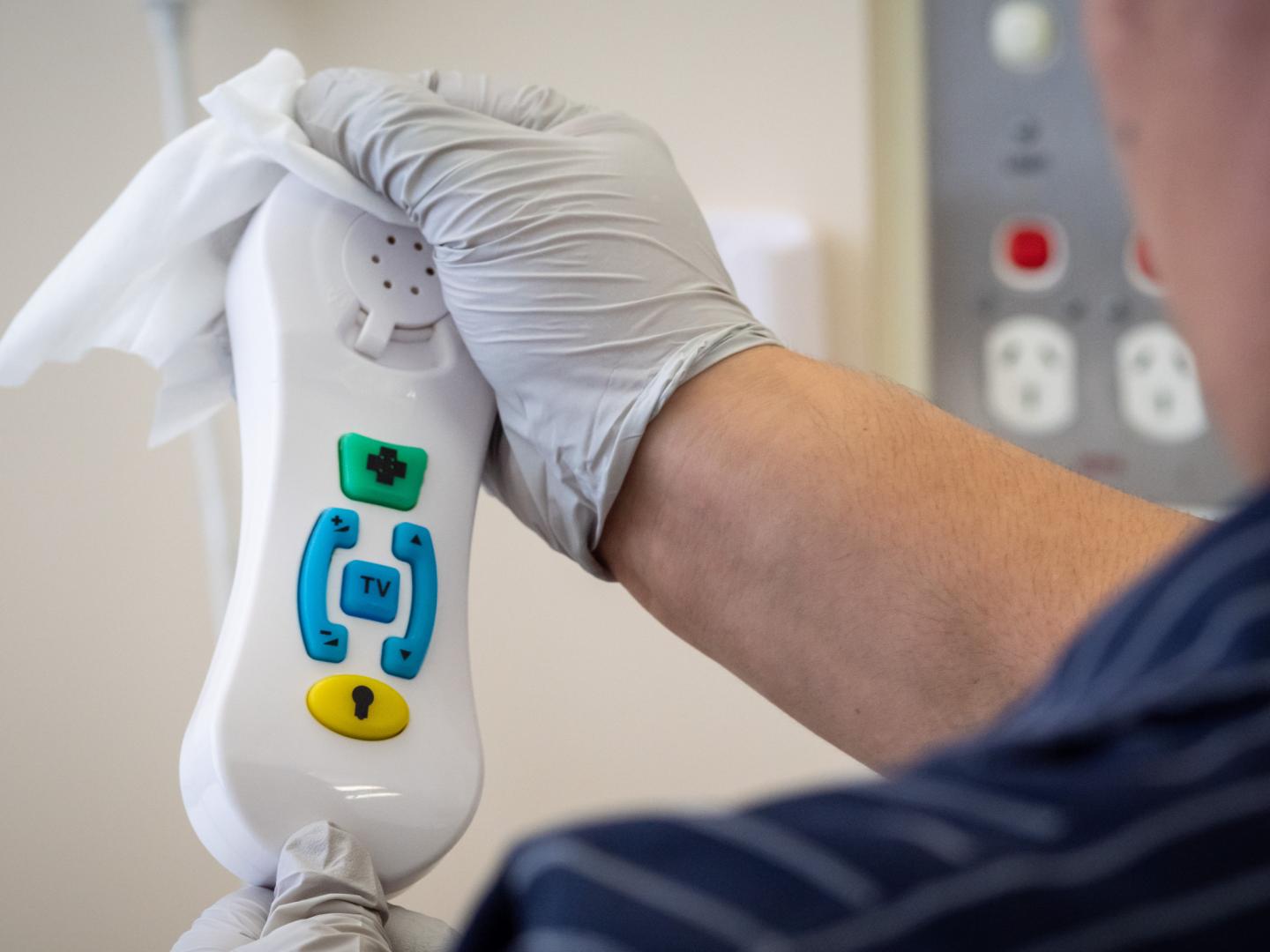A QUT-led study involving 11 Australian hospitals has found that better cleaning of ‘touch points’ in wards reduces healthcare-associated infections

Credit: QUT
A major trial of a bundle of hospital cleaning practices in 11 Australian hospitals has made significant reductions in healthcare-associated infections and demonstrated cost-benefits.
The study, “An environmental cleaning bundle and health care-associated infection in hospitals (REACH): a multi-centre randomised trial”, was led by QUT health economist Professor Nick Graves from the Australian Centre for Health Services Innovation (AusHSI) at the Institute of Health and Biomedical Innovation (IHBI) and is published in The Lancet Infectious Diseases. It was funded by Australia’s National Health and Medical Research Council.
“This research project is believed to be the largest prospective, multi-site and multifactorial trial of hospital cleaning in the world,” Professor Graves said.
“Its aim primarily was to investigate whether a change in cleaning practices was effective in reducing the 165,000 healthcare-associated infections in Australia each year.”
Professor Graves said the REACH (Researching Effective Approaches to Cleaning Hospitals) project introduced a bundle of cleaning initiatives, tailored to each hospital in the study, to improve both routine and discharge hospital room cleaning.
Hospital-wide promotion of the importance of cleaning in reducing infections was undertaken to support a culture shift in the profile of environmental services staff, Professor Graves said.
“Cleaning was audited using fluorescent marker technology. This system used gel dots, invisible to the naked eye, applied to surfaces. The dots resist dry abrasion and are removed only by a thorough cleaning technique,” he said.
“Hospitals in the study improved their cleaning practices from 55 to 76 per cent in bathroom areas and from 64 to 86 per cent in bedroom areas.
“This resulted in a 37 per cent reduction in the major healthcare-associated infection, vancomycin-resistance enterococci (VRE), and a 5.8 per cent decrease overall in three types of infections.
“In contrast to previous research, the cleaning bundle development prioritized evidence-based strategies that were easy to implement and lower cost, over newer expensive technologies.
“Overall, the cleaning bundle cost approximately $2,500 per 10,000 bed days to implement in participating hospitals.”
The REACH cleaning bundle was successful at improving cleaning thoroughness and showed great promise in reducing vancomycin-resistant enterococci infections. It also demonstrated cost-savings and increased health benefits from infections prevented.
The intervention is broadly applicable to cleaning in any hospital, throughout the continuum of care, as it does not solely focus on discharge cleaning. Future publication of the economic outcomes of the study will provide valuable information for decision makers about the potential for investing in future hospital cleaning initiatives.
###
The REACH study was funded by an NHMRC grant (GNT1076006), led by QUT, in partnership with Wesley Medical Research, and supported by Kimberly-Clark Professional, Ecolab Pty Ltd, Whiteley Corporation, the Deeble Institute for Health Policy Research, Australasian College for Infection Prevention and Control and the Australasian Society for Infectious Diseases. Study investigators were Prof Nick Graves, Prof Adrian Barnett, A/Prof Lisa Hall, Dr Kate Balcon, Dr Katie Page, Prof Anne Gardner (QUT), Prof Brett Mitchell (Avondale College), Prof David Paterson, Prof Christian Gericke (University of Queensland), Prof Tom Riley (University of Western Australia).
QUT Media contacts: Niki Widdowson or Rose Trapnell, [email protected].
Media Contact
Niki Widdowson
[email protected]
Original Source
https:/
Related Journal Article
http://dx.




